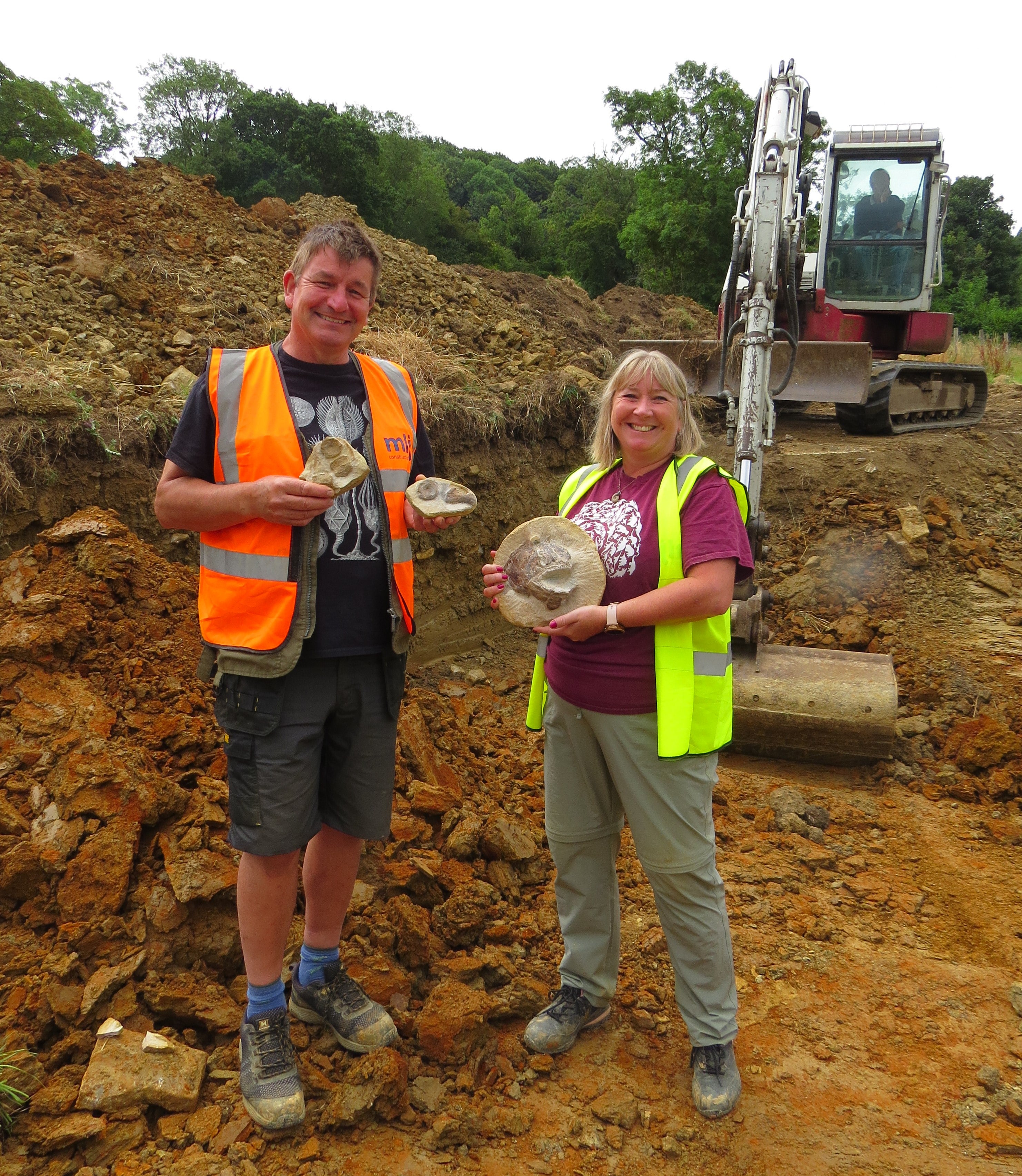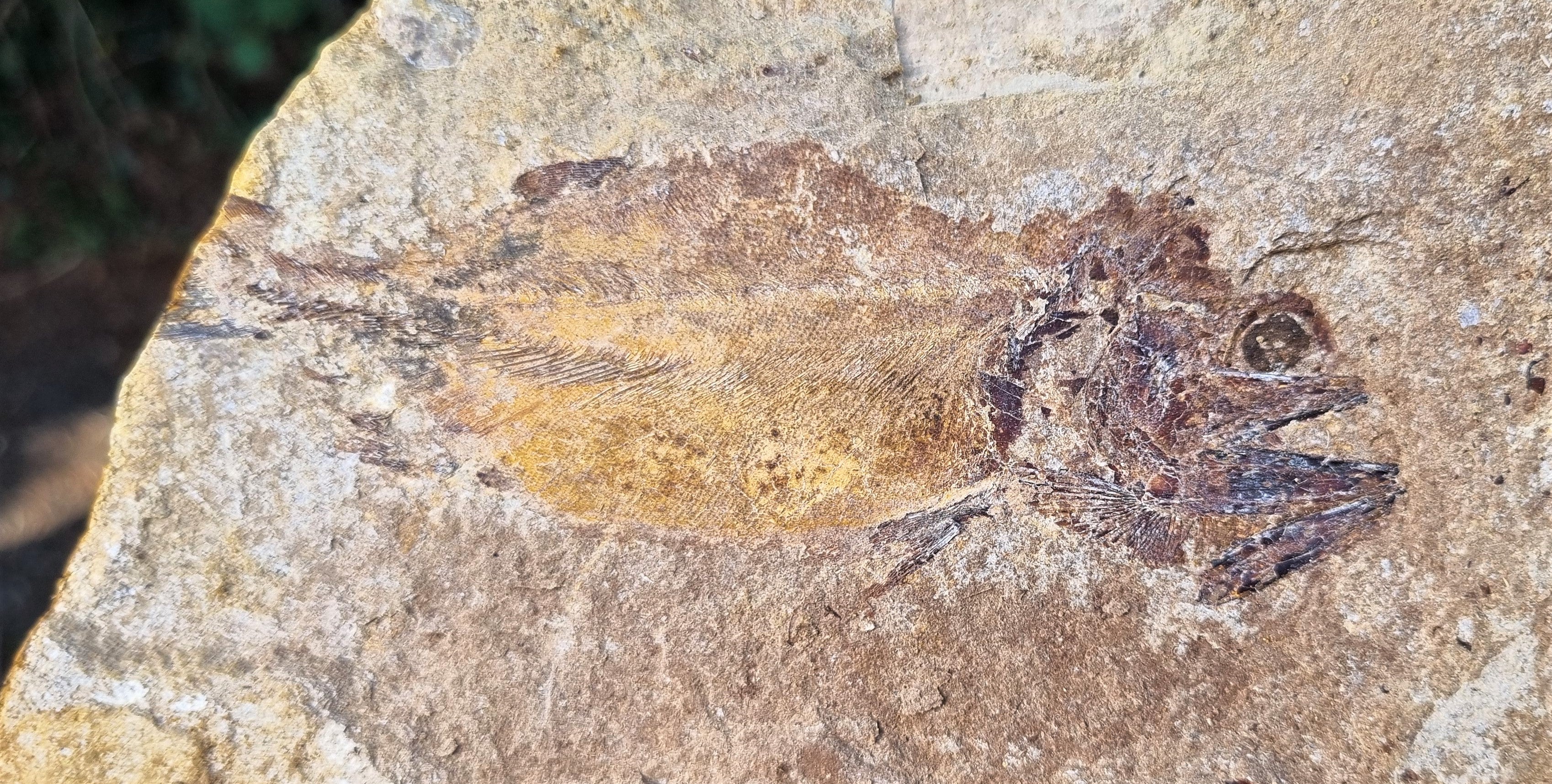
A fierce-looking fossil fish has been discovered in a new Jurassic dig site in Gloucestershire, having been perfectly preserved for almost 200 million years.
The fossil shows pronounced big eyes and teeth with its mouth wide open of a fish which lived in a tropical sea roughly 183 million years ago.
The rock was was unearthed and identified by West Country fossil-hunters Neville and Sally Hollingworth, who have enjoyed a string of important fossil discoveries.

They found the preserved predator called Pachycormus in the dig site just outside Stroud.
The Hollingworths explained that the fossils come from the Early Jurassic- and more specifically, a time called the Toarcian.
“Excavations at Kings Stanley over the last week have revealed a rich source of fossil material, particularly from a rare layer of rock that has not been exposed since the late 19th Century,” they said.
The fish head was found behind a cow shed in a grassy bank on Court Farm in Kings Stanley village.
The landowner, Adam Knight, was unaware of the rich fossil bed his cattle were grazing on top of.
He gave permission to the Hollingworths and an expert team from the University of Manchester to investigate further.

They brought in a digger to crack open more limestone nodules, where the ferocious fossil was originally buried in.
They discovered more fish, squid and the bones of two ichthosaurs which are marine reptiles with a similar appearance to dolphins.
They also found fossilised wood and insects in the clay layer, which suggests land was not far away from the marine setting.
Paleantologist Dean Lomax said the discovery shows there are still many more significant fossil revelations to be made in the UK.
He said: “The site is quite remarkable, with numerous beautifully preserved fossils of ancient animals that once lived in a Jurassic sea that covered this part of the UK during the Jurassic.
“Inland locations with fossils like this are rare in the UK. The fossils we have collected will surely form the basis of research projects for years to come.”
Many of the specimens collected will be donated to the local Museum in the Park, Stroud, where they will form a significant part of the museum’s palaeontology collections.
The team hope that s ome of the discoveries will be put on display for the public at the Boho Bakery Café, which is very close to Court Farm, in October.







